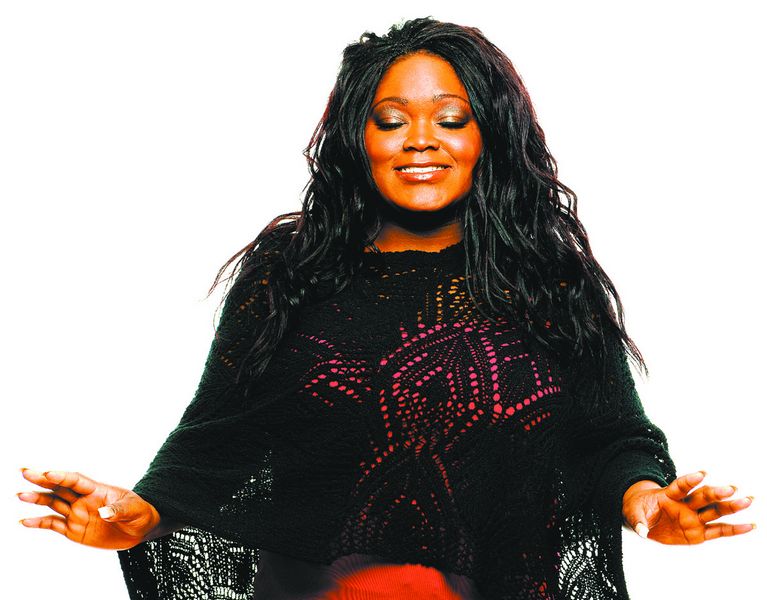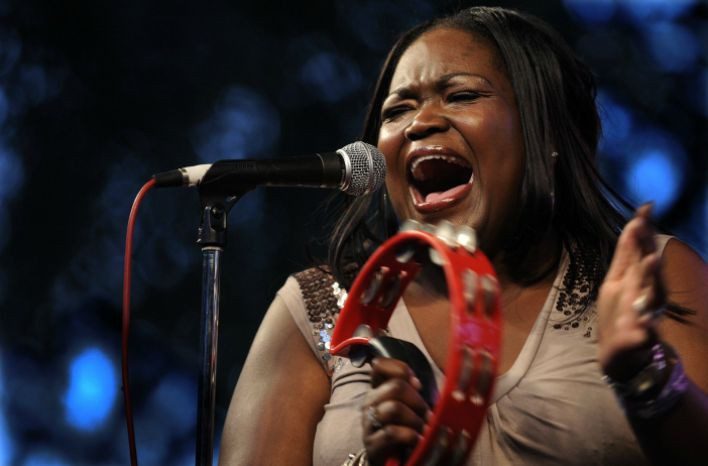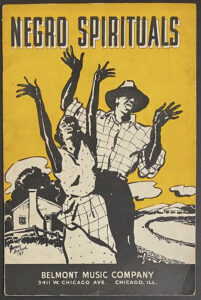
Mormon Tabernacle and Spelhouse Glee Club Performance
On Monday, October 23rd, 2023, the Survey of African American Music Class had the opportunity to watch the Spelman Glee Club along with the Morehouse
Blues began around the 1870s. That was over a century ago. However, the genre is still flourishing and thriving thanks to musicians like Shemekia Copeland, who embodies what it means to be a modern-day Blues artist.

Shemekia Copeland was born in Harlem, New York in 1971. She is the daughter of Texas Blues guitarist and singer Johnny Copeland. She started to sing at an early age under the guidance of her father. Her first performance was at the cotton club when she was only 10. She started to take music more seriously when she was in high school at age 16. She started performing as the opening act at her father’s concerts. The consistent attention helped her break into the music industry and got her name out there in the blues world.

Once she graduated from high school she delivered her debut album Turn the Heat Up! (1998) at age 19. Her father, unfortunately, didn’t get to celebrate with her. He died in 1997. She followed up with her album Wicked (2000) which earned her three Blues Music Awards.
She has gone on to release 7 studio albums. Shemekia Copeland is married and has a four-year-old son named Johnny Lee Copeland-Schultz.
Blues was apart of a wave of innovation in Black music. The music reflected the times. Jim Crow laws limited the freedom and rights of African Americans. African Americans were faced with discrimination and hate in every part of their life. The pain and suffering were translated into the music. Blues songs were normally sung solo and the lyrics were reflective, sober, and sorrowful. Blues singers were Griots, they were telling the troubled stories of African Americans. Retelling history through musical expression.
Artists like B.B King, Muddy Waters, and Bessie Smith are notable Blues Artists.
There are unique elements of the blues. First is the blue note which is a note that falls between two adjacent notes in the standard Western division of the octave, most often the third or seventh degree on a scale. Second, a bottleneck which is a technique where a guitarist slides a glass/metal neck from a bottle across the strings to reconstruct the timbre.
Shemekia Copeland is a powerhouse singer. Even on her debut album, she was able to sound wise and mature like an older woman and not like the teenager she was. Her voice is able to be sultry, confident, and roaring. Similar to the greats like Etta James and Bessie Smith.

She encompasses the sound of the Blues in her music. Her lyrics deal with issues that plague the Black community. From political issues to generational issues. On the other hand, she uses riffs which are short, recurrent melodic-rhythmic phrases.

From the day she was a little girl, Shemekia Copeland was destined to be a Blues singer. Her powerful voice speaks about matters in our community. Simultaneously she’s able to incorporate elements of old Blues with modern electric guitar blues. Thanks to artists like, Shemika Copeland, Blues is still very much alive and very Black.

On Monday, October 23rd, 2023, the Survey of African American Music Class had the opportunity to watch the Spelman Glee Club along with the Morehouse

/*! elementor – v3.17.0 – 08-11-2023 */ .elementor-heading-title{padding:0;margin:0;line-height:1}.elementor-widget-heading .elementor-heading-title[class*=elementor-size-]>a{color:inherit;font-size:inherit;line-height:inherit}.elementor-widget-heading .elementor-heading-title.elementor-size-small{font-size:15px}.elementor-widget-heading .elementor-heading-title.elementor-size-medium{font-size:19px}.elementor-widget-heading .elementor-heading-title.elementor-size-large{font-size:29px}.elementor-widget-heading .elementor-heading-title.elementor-size-xl{font-size:39px}.elementor-widget-heading .elementor-heading-title.elementor-size-xxl{font-size:59px} All about the ladies Nina Simone /*! elementor – v3.17.0 –

Negro spirituals are a religious kind of music that was developed by Africans who were held as slaves for a variety of reasons, including entertainment,

History of the Blues The blues era, spanning from the late 19th century to the mid-20th century, stands as a cornerstone in the evolution of

AI and summer of Soul AI’s perspective vs human What is Summer of Soul? The Harlem Cultural Festival, took place in the summer of 1969

/*! elementor – v3.15.0 – 09-08-2023 */ .elementor-heading-title{padding:0;margin:0;line-height:1}.elementor-widget-heading .elementor-heading-title[class*=elementor-size-]>a{color:inherit;font-size:inherit;line-height:inherit}.elementor-widget-heading .elementor-heading-title.elementor-size-small{font-size:15px}.elementor-widget-heading .elementor-heading-title.elementor-size-medium{font-size:19px}.elementor-widget-heading .elementor-heading-title.elementor-size-large{font-size:29px}.elementor-widget-heading .elementor-heading-title.elementor-size-xl{font-size:39px}.elementor-widget-heading .elementor-heading-title.elementor-size-xxl{font-size:59px} How Did Erykah Badu Impact The NeoSoul Genre? To me, Erykah

Login to your account